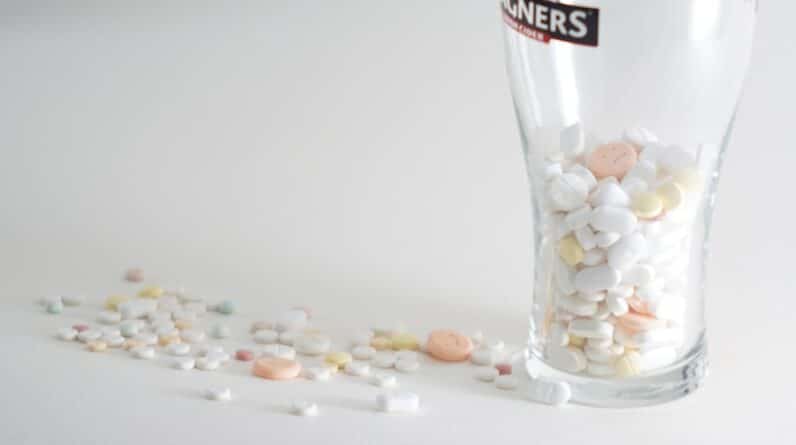Cholesterol is a waxy, fat-like substance that your body needs to build cells and produce certain hormones. While your body naturally produces cholesterol, it also comes from the foods you eat. There are two main types of cholesterol: low-density lipoprotein (LDL), often referred to as “bad” cholesterol, and high-density lipoprotein (HDL), known as “good” cholesterol.
An imbalance between these two types can lead to serious health issues, including heart disease and stroke. When LDL levels are too high, it can lead to plaque buildup in your arteries, narrowing them and making it difficult for blood to flow. Conversely, higher levels of HDL can help remove LDL from your bloodstream, reducing the risk of cardiovascular problems.
Understanding your cholesterol levels is crucial for maintaining overall health. Regular check-ups can help you monitor these levels and take necessary actions if they fall outside the recommended ranges. High cholesterol often presents no symptoms, which is why it’s often referred to as a “silent killer.” You may feel perfectly fine while your cholesterol levels are dangerously high.
This lack of symptoms makes it essential for you to be proactive about your health by getting regular blood tests and understanding what those numbers mean for your well-being.
Key Takeaways
- Cholesterol is a waxy substance that can build up in the arteries and increase the risk of heart disease and stroke.
- Livalo is a medication that can help lower cholesterol levels and reduce the risk of cardiovascular events.
- Lifestyle changes such as quitting smoking, exercising regularly, and managing stress can help improve lipid levels.
- Eating a diet high in fruits, vegetables, and whole grains, and low in saturated and trans fats can help lower cholesterol.
- Regular physical activity, such as brisk walking or swimming, can help raise HDL cholesterol and lower LDL cholesterol levels.
The Role of Livalo in Managing Cholesterol Levels
Livalo, or pitavastatin, is a medication that belongs to a class of drugs known as statins. These medications are designed to lower cholesterol levels in the blood by inhibiting an enzyme in the liver responsible for producing cholesterol. If you have been diagnosed with high cholesterol or are at risk for cardiovascular disease, your healthcare provider may prescribe Livalo as part of your treatment plan.
This medication can effectively lower LDL cholesterol levels while also modestly increasing HDL cholesterol levels, making it a valuable tool in managing your lipid profile. Taking Livalo can be an important step in your journey toward better heart health. However, it’s essential to remember that medication alone is not a cure-all.
While Livalo can help you achieve healthier cholesterol levels, it should be used in conjunction with lifestyle changes and dietary adjustments for optimal results. Your healthcare provider will likely monitor your progress and adjust your treatment plan as needed, ensuring that you are on the right path toward managing your cholesterol effectively.
Lifestyle Changes for Healthy Lipids

Making lifestyle changes is one of the most effective ways to manage your cholesterol levels. Simple adjustments in your daily routine can have a significant impact on your overall health. For instance, quitting smoking can improve your HDL cholesterol levels and benefit your heart health in numerous ways.
If you smoke, consider seeking support to help you quit; this single change can lead to substantial improvements in your lipid profile and overall well-being. In addition to quitting smoking, managing stress is another crucial aspect of maintaining healthy cholesterol levels. Chronic stress can lead to unhealthy eating habits and increased blood pressure, both of which can negatively affect your cholesterol levels.
Incorporating stress-reducing activities into your daily routine—such as meditation, yoga, or even simple breathing exercises—can help you maintain a more balanced lifestyle. By focusing on both physical and mental well-being, you can create a holistic approach to managing your cholesterol.
Dietary Approaches to Lower Cholesterol
Your diet plays a pivotal role in managing cholesterol levels. By making informed food choices, you can significantly impact your lipid profile. Foods high in saturated fats, such as red meat and full-fat dairy products, can raise LDL cholesterol levels.
Instead, consider incorporating healthier fats into your diet, such as those found in olive oil, avocados, and nuts. These unsaturated fats can help improve your cholesterol levels while providing essential nutrients. Additionally, increasing your intake of soluble fiber can be beneficial for lowering cholesterol.
Foods like oats, beans, lentils, fruits, and vegetables are excellent sources of soluble fiber that can help reduce LDL cholesterol absorption in the bloodstream. By focusing on a diet rich in whole grains, fruits, and vegetables while limiting processed foods and sugars, you can create a sustainable eating plan that supports healthy lipid levels over time.
Exercise and Physical Activity for Cholesterol Management
Regular physical activity is another cornerstone of effective cholesterol management. Engaging in aerobic exercises—such as walking, running, cycling, or swimming—can help raise HDL cholesterol while lowering LDL cholesterol levels. Aim for at least 150 minutes of moderate-intensity aerobic activity each week to reap the benefits of exercise on your heart health.
Even small changes, like taking the stairs instead of the elevator or going for a brisk walk during lunch breaks, can contribute to improved cholesterol levels. Incorporating strength training into your routine is also beneficial. Building muscle mass can enhance your metabolism and help regulate blood sugar levels, which indirectly supports healthy cholesterol management.
Consider adding resistance exercises at least twice a week to complement your aerobic activities. By making physical activity a regular part of your life, you not only improve your cholesterol levels but also enhance your overall health and well-being.
Natural Supplements and Remedies for Healthy Lipids

In addition to lifestyle changes and medications like Livalo, some natural supplements may help support healthy cholesterol levels. Omega-3 fatty acids, commonly found in fish oil supplements, have been shown to lower triglycerides and improve overall heart health. If you’re not getting enough omega-3s from your diet—such as fatty fish like salmon or walnuts—consider discussing supplementation with your healthcare provider.
Another supplement worth considering is plant sterols or stanols, which are naturally occurring substances found in certain plants that can help block the absorption of cholesterol in the intestines. Many fortified foods contain these compounds, but they are also available in supplement form. Before starting any new supplement regimen, it’s essential to consult with a healthcare professional to ensure it’s appropriate for you and won’t interfere with any medications you may be taking.
Other Prescription Medications for Managing Cholesterol
While Livalo is an effective option for many individuals dealing with high cholesterol, it’s not the only medication available. Other statins—such as atorvastatin or simvastatin—may be prescribed based on individual needs and responses to treatment. Additionally, non-statin medications like ezetimibe work by reducing the amount of cholesterol absorbed from food in the intestines and may be used alone or in combination with statins for enhanced effectiveness.
Your healthcare provider will evaluate various factors—including your overall health, specific cholesterol levels, and any potential side effects—when determining the best medication for you. It’s crucial to maintain open communication with your provider about how you’re feeling on any prescribed medication and report any side effects or concerns promptly.
Consultation with a Healthcare Professional for Cholesterol Management
Consulting with a healthcare professional is vital when it comes to managing your cholesterol levels effectively. Regular check-ups allow you to monitor your progress and make necessary adjustments to your treatment plan based on current health status and lifestyle changes. Your healthcare provider can offer personalized advice tailored to your unique situation and help you navigate the complexities of managing cholesterol.
In addition to prescribing medications or recommending lifestyle changes, healthcare professionals can provide valuable resources and support systems that empower you on your journey toward better heart health. Whether it’s connecting you with a nutritionist for dietary guidance or suggesting local exercise programs that fit your interests, having a supportive team can make all the difference in achieving and maintaining healthy cholesterol levels over time. In conclusion, understanding cholesterol and its impact on health is crucial for anyone looking to improve their well-being.
By utilizing medications like Livalo alongside lifestyle changes—including diet modifications and regular exercise—you can take significant steps toward managing your cholesterol effectively. Remember that consultation with healthcare professionals is key; they will guide you through this journey and help you make informed decisions about your health.
If you are interested in learning more about health nutrition supplements, you may want to check out this article on what health nutrition supplements are. It provides valuable information on the benefits of incorporating supplements into your daily routine. Additionally, if you are looking for the best supplement for overall health, this article on the top supplements for overall health may be of interest to you. And if you are specifically interested in supplements for skin, hair, and nail health, this article on the best supplements for skin, hair, and nail health offers helpful recommendations.
FAQs
What is Livalo and how does it work?
Livalo (pitavastatin) is a medication used to lower high cholesterol and triglyceride levels in the blood. It belongs to a class of drugs called statins, which work by reducing the production of cholesterol in the liver.
What are the potential alternatives to Livalo for managing healthy lipid levels?
There are several alternatives to Livalo for managing healthy lipid levels, including other statins such as atorvastatin, simvastatin, and rosuvastatin. Other non-statin medications like ezetimibe and PCSK9 inhibitors may also be considered as alternatives.
What are the potential benefits of choosing an alternative to Livalo?
Choosing an alternative to Livalo may offer benefits such as cost savings, different side effect profiles, and potential for better lipid control. It also allows for individualized treatment based on a patient’s specific needs and medical history.
What are the potential risks of switching from Livalo to an alternative medication?
Switching from Livalo to an alternative medication may pose risks such as potential for different side effects, changes in lipid control, and the need for close monitoring by a healthcare provider. It is important to discuss any potential risks with a healthcare professional before making a switch.
How can I determine the best alternative to Livalo for my specific health needs?
Determining the best alternative to Livalo for specific health needs should be done in consultation with a healthcare provider. Factors such as medical history, current medications, and lipid levels will be taken into consideration when determining the most appropriate alternative.






